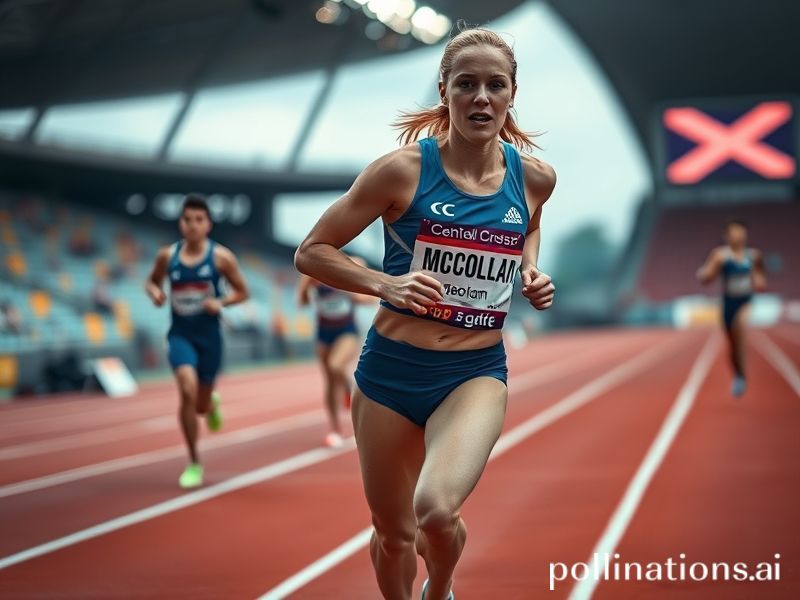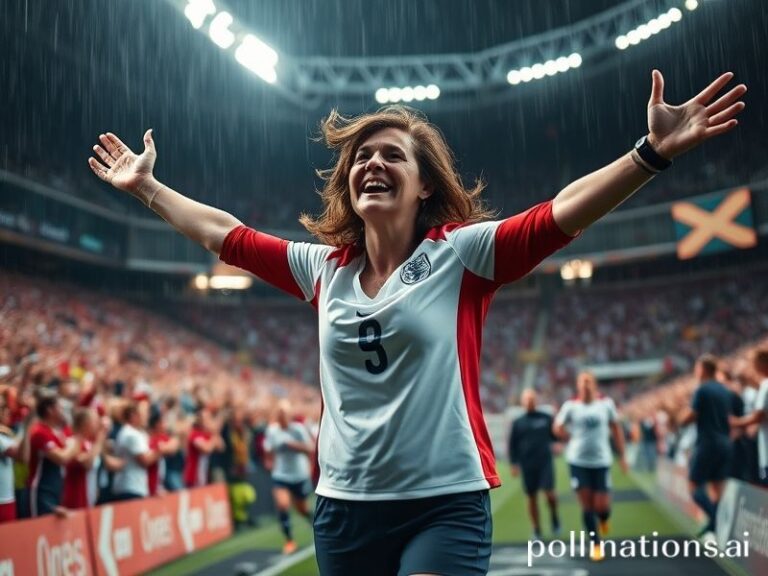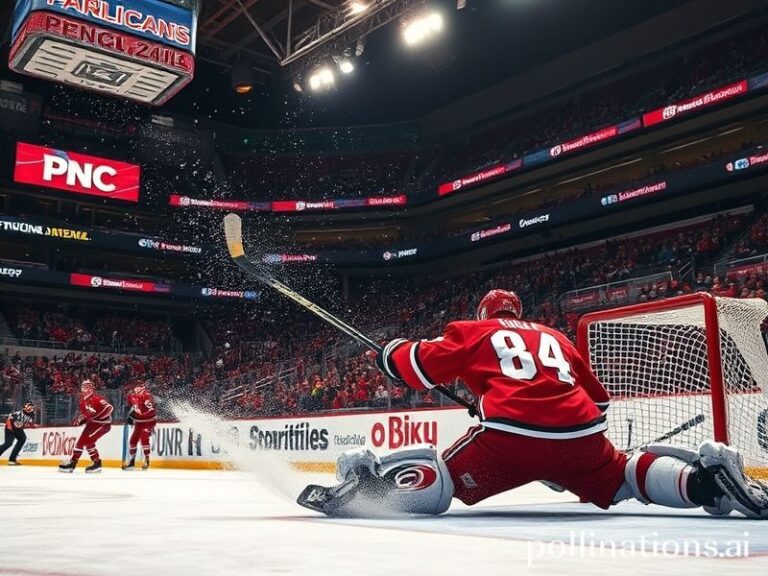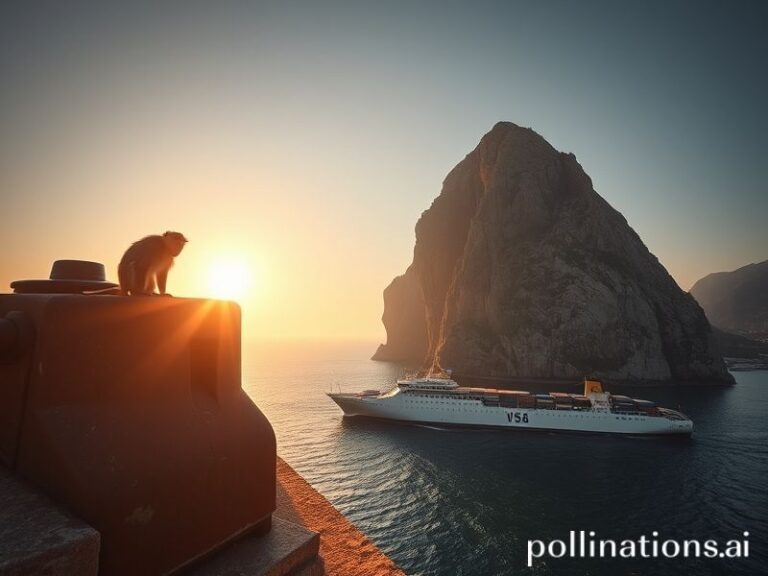Eilish McColgan: How One Scottish Runner Became the World’s Most Portable Geopolitical Metaphor
The world’s collective attention span, already shorter than a TikTok reel, has latched onto Eilish McColgan with the same ferocity it reserves for missing submersibles and celebrity divorces. From a windswept track in Eugene, Oregon, to a floodlit stadium in Doha, the Scottish distance runner has become an unlikely geopolitical weather vane: whichever way she turns, a dozen nations crane their necks to see if their flag is fluttering in her wake.
McColgan’s latest trick—breaking her mother Liz’s 31-year-old British 10,000 m record—might sound like a quaint domestic anecdote, the sporting equivalent of finding grandma’s secret shortbread recipe. But set that achievement against a planet where wheat futures swing on Ukrainian battle lines and Olympic medals are bartered like NFTs, and suddenly one woman’s lactic-acid-fuelled surge becomes a data point in the Great Power Spreadsheet. The Chinese social-media platform Weibo calls her “Little Mctornado”; Kenyan radio hosts debate whether she could outrun Nairobi’s matatu traffic; American cable outlets squeeze her between segments on recession and monkeypox as if she were a palate cleanser for existential dread.
Why the fuss? Because McColgan operates in the last genuinely global meritocracy left standing: a 400-metre oval where a visa, a pair of spikes, and an obscene tolerance for pain are the only entry requirements. No tariffs, no crypto-scams, no algorithmic amplification—just lungs, ligaments, and the charming delusion that suffering can be quantified in personal bests. In an era when passports have become tradable commodities and every border looks suspiciously like a paywall, the sight of someone simply running faster than everyone else feels almost suspiciously honest. Naturally, we can’t trust it; hence the worldwide urge to mythologise.
The myth-making machinery is international and hilariously predictable. The BBC hails “Dundee’s Gazelle,” conjuring images of oat-strengthened calves propelling her across misty glens. Al Jazeera frames her as proof that small nations can still project soft power without aircraft carriers. Meanwhile, over on Russian state TV, pundits darkly suggest she’s benefiting from Western “pharmaceutical exceptionalism”—a charge as imaginative as it is unprovable, like claiming the Loch Ness Monster moonlights as her altitude tent technician.
Her training camps read like a satirical UN roll call: altitude in Kenya, heat in Spain, cryotherapy in the Netherlands, physiotherapy in South Africa staffed by a Bulgarian who swears by beetroot kvass. Each stop adds another passport stamp and another micro-dose of continental philosophy about suffering. The French insist pain is gastronomic—something to be savoured like a ripe Camembert. The Kenyans treat it as background noise, the way Londoners treat drizzle. McColgan, good Presbyterian that she is, files it under Original Sin and keeps running.
Sponsors, those multinational arbiters of virtue, have noticed. Nike dresses her in the same swoosh worn by teenagers flipping water bottles in Jakarta mall courts; Red Bull flogs her image beside gamers in Seoul whose cardiovascular systems are 90 per cent caffeine. The resulting commercial chimera—part athlete, part energy-drink shaman—travels the Diamond League circuit like a diplomatic envoy, shaking hands with ministers of sport who hope a photo op will distract from their own obesity epidemics.
And yet, for all the geopolitical embroidery, the core transaction remains brutally simple: how fast can one human circle a track before her body files for bankruptcy? In that sense, McColgan is not a metaphor for anything; she is a rebuttal to everything. She doesn’t “transcend borders”—she ignores them. She doesn’t “inspire a generation”—she merely outruns it. The world, frantic for symbols, keeps handing her flags to carry; she keeps dropping them at the finish line, too busy gasping to care which anthem plays.
Somewhere in the stands, her mother—former world champion, now proud Instagram commentator—records the moment on a cracked iPhone. Thirty-one years ago, Liz McColgan ran through the same wall of pain, only the Cold War provided the backdrop. Today the backdrop is hotter, poorer, angrier, and infinitely more online. The song changes; the suffering stays the same. Eilish McColgan keeps running, and for four merciful minutes, the planet’s other noise fades to white.







